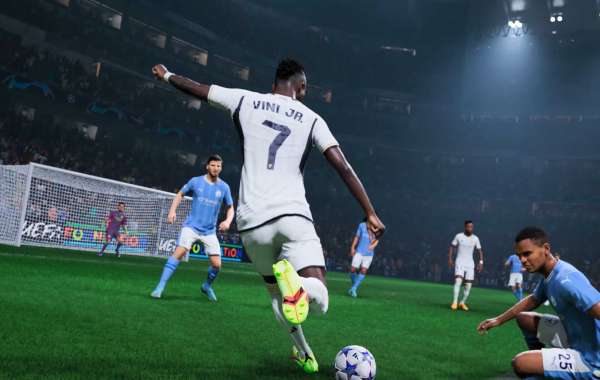Choosing a career path is often one of the most challenging decisions students face, especially after completing Class 10 or 12. In India, the weight of societal expectations, parental opinions, and peer influence can make this decision even more complex. But beyond the pressure lies an opportunity—an opportunity to align one's education with personal strengths and long-term goals.
From traditional streams like Science, Commerce, and Arts to emerging interdisciplinary fields, the modern Indian education system now accommodates a wide spectrum of aspirations. Students no longer have to follow a one-size-fits-all roadmap. Instead, they can align their studies with their interests, abilities, and ambitions.
Academic Streams and Their Real-World Potential
Historically, Science has been the default recommendation for students scoring well in school. While it does provide entry into professional courses like engineering, medicine, and research, it's essential to understand that each stream carries equal weight when paired with the right mindset and effort.
One area that has often been overlooked—but is steadily gaining recognition—is the Arts and Humanities in Education. The narrative around these subjects is changing. Today, courses in psychology, sociology, literature, journalism, and political science are offering students the chance to impact social, economic, and cultural spheres meaningfully.
Importance of Informed Choices Over Popular Trends
It’s common for students to feel unsure about their future direction, especially when they’re surrounded by voices pushing them in various directions. Some may suggest engineering because a cousin succeeded in it. Others may advise medical studies because of stable job prospects.
But the critical factor here is individual interest. The process of making an informed decision begins with asking the right questions: What subjects do I enjoy? Which activities make me feel accomplished? What kind of lifestyle or impact do I want to pursue?
With distractions from digital devices, social media, and peer comparison, maintaining focus can be hard. Learning how to manage these distractions is vital for anyone aiming to succeed academically. A strong mental habit of blocking out non-essential input can be a significant game-changer, especially for students during exam preparation or while exploring new subjects. One of the most useful guides available for this challenge is Overcoming Study Distractions—a resource that presents practical techniques to help students remain on track.
Self-Awareness as the Foundation of Career Planning
Choosing a path without understanding yourself is like selecting a destination without a map. Self-assessment tools, aptitude tests, and interest-based evaluations can offer powerful insights into what a student may enjoy or excel at in the long run.
India's competitive academic culture often sidelines the importance of emotional well-being and personality fit when choosing a career. This is where structured self-reflection and guidance can make a massive difference. For students still navigating this phase, Career Clarity programs provide a thoughtful approach to identifying meaningful paths through personality analysis, aptitude matching, and interest alignment.
These tools are not just for those who are confused—they also help reinforce the decisions of students who already have a direction in mind, strengthening their resolve and increasing the chances of long-term satisfaction.
Science Stream: Still a Strong Contender
While there is a push for diverse streams, Science continues to hold strong appeal, particularly due to its potential in research, engineering, healthcare, data science, and environmental technology. This stream not only opens doors for degrees like MBBS, BTech, or BSc but also provides a strong analytical foundation for competitive exams like UPSC, NEET, and IIT-JEE.
For those interested in a structured guide to understanding subject choices and future prospects in this stream, Career Options in Science Stream can serve as an excellent starting point. It breaks down popular and lesser-known career routes in Science and outlines the skills required to thrive in each.
However, students should evaluate their interest in core subjects like Physics, Chemistry, and Mathematics or Biology before committing. A student who enjoys problem-solving and logic may find Computer Science more fulfilling, whereas another drawn to human anatomy and wellbeing may prefer medical sciences.
Understanding UG and PG Education
Once students complete their schooling and decide on a stream, the next logical step is to look into undergraduate (UG) and postgraduate (PG) education. UG refers to the first level of degree education—such as BA, BCom, BSc, BTech, or MBBS—depending on the student’s chosen stream and subject.
PG programs come after graduation and usually involve specialised learning in a particular domain. Courses like MA, MSc, MTech, or MBA are examples. Understanding the structure, expectations, and eligibility of these academic phases helps students plan better.
A useful resource for demystifying this academic structure is UG and PG Full Form. It lays out the foundational differences between the two, outlines eligibility requirements, and offers guidance on what students can expect in terms of career progression post-completion.
Future Trends in Indian Education
With India’s youth population being one of the largest in the world, the demand for quality education has never been higher. As more students move towards online learning, interdisciplinary programs, and skill-based certifications, the face of education is shifting.
Fields like artificial intelligence, environmental science, design thinking, and digital marketing are rising in relevance. But these aren’t just trends—they are responses to industry demand. Universities and colleges are adjusting their course offerings, and students must stay informed about industry expectations and global standards.
Furthermore, the government has taken steps through initiatives like NEP 2020 (National Education Policy) to make education more flexible and student-centric. For example, a student might choose a core subject from Science while picking elective modules from Arts or Commerce. This type of integration is encouraging students to think beyond the binary choices of streams.
Balancing Passion and Practicality
While it’s important to follow one’s interests, career choices must also consider job market trends, geographic limitations, economic stability, and future growth potential. This balance of head and heart is often hard to strike, especially at a young age.
Career counselling services, mentorship programs, and interactions with professionals can provide valuable insights. Many schools and institutes are now hosting career weeks, inviting alumni to speak, and providing psychometric testing services. These initiatives are excellent stepping stones in the journey toward purposeful education and a meaningful career.
Role of Parents and Educators
Parents and teachers play a crucial role in shaping students' perspectives. Their support, encouragement, and guidance can either motivate or mislead. Instead of imposing personal expectations, they must encourage open dialogue, patience, and trust in the student’s decision-making process.
A collaborative environment where students are allowed to question, express concerns, and receive non-judgemental support is more likely to result in career satisfaction than a rigid push in any one direction.
Conclusion: Moving Forward with Confidence
Career decisions are rarely one-time events. They evolve over time, based on new experiences, learning, and changing interests. For Indian students today, the key lies in staying curious, taking informed steps, and seeking support when needed.
Whether a student is inclined toward creative fields, logical thinking, or social development, the Indian education system now offers enough flexibility to make that ambition a reality—without compromise. With the right guidance and self-knowledge, they can chart a path that is both fulfilling and future-ready.






